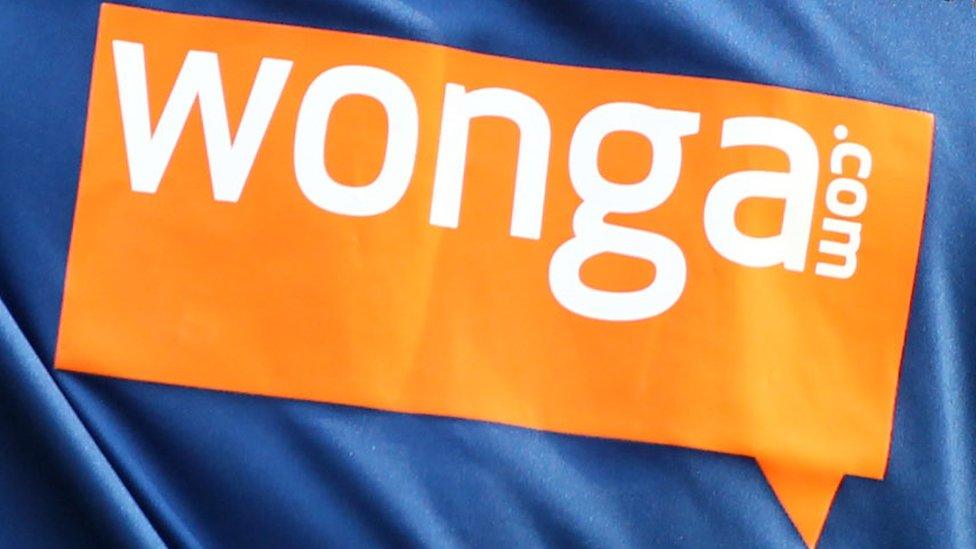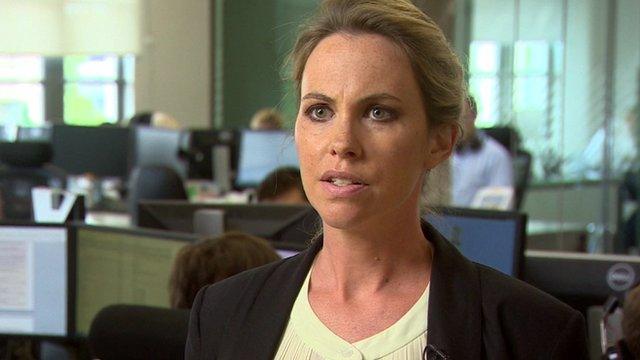Wonga letters: Police meet regulators to discuss case
- Published

Wonga has apologised to customers for the letters and agreed to pay compensation
Police and regulators have been meeting to discuss Wonga, the payday lender embroiled in controversy over letters from fake lawyers.
Wonga sent letters from non-existent law firms to customers in arrears between 2008 and 2010, and has now agreed to pay compensation.
On Friday, the City of London Police said it would reconsider opening a criminal investigation into the case.
It is meeting staff from the Financial Conduct Authority (FCA).
The event, at the FCA, is thought to be an initial, exploratory meeting and is unlikely to be followed by announcements on future action.
City of London Police would not comment on the meeting or confirm that it was taking place.
'Reassessment'
Last week, the FCA said that Wonga had agreed to pay £2.6m in compensation to about 45,000 customers - an average of about £50 each.
An investigation by the regulator found that Wonga sent letters to customers from fake law firms called "Chainey, D'Amato & Shannon" and "Barker and Lowe Legal Recoveries", sometimes charging customers a fee for these letters.
The plan was to make customers in arrears believe that their outstanding debt had been passed to a law firm, with legal action threatened if the debt was not paid.
The police had initially ruled out criminal action, saying the case should be left to the regulator. But the force confirmed on Friday that it would "be reassessing whether a criminal investigation is now appropriate".
The Law Society, which represents solicitors in the UK, has called on police to look at whether the company committed an offence of obtaining pecuniary advantage by deception and blackmail, as well as offences under the Solicitors Act.
A spokesman for Wonga said on Friday that nobody from the company had been interviewed or had any contact with police since regulators started looking into the case in 2011.
He said the focus for the company now was to compensate customers who were affected.
New rules
Separately, new regulations that come into force on Tuesday will restrict some activities by payday lenders.
Lenders will be banned from rolling over loans more than twice, they must place "risk warnings" about repayments on television adverts, and they will be limited in their freedom to claw back debts from borrowers' accounts.
The changes, demanded by the FCA, come ahead of a proposed cap on the cost of payday loans.
The Consumer Finance Association, a trade body that represents a number of lenders but not Wonga, said that many lenders had been working towards these rules for some time, through their own voluntary code.
- Published27 June 2014

- Published25 June 2014

- Published25 June 2014
- Published25 June 2014
